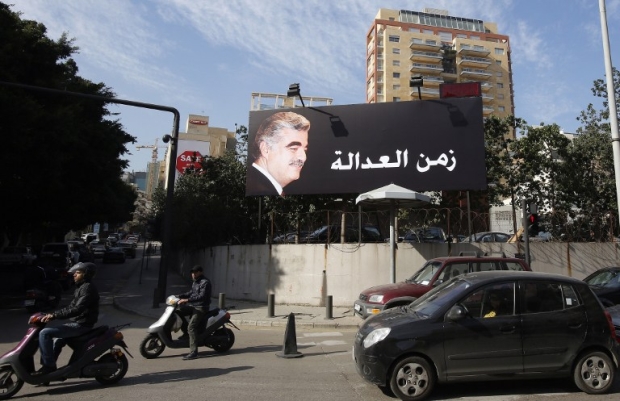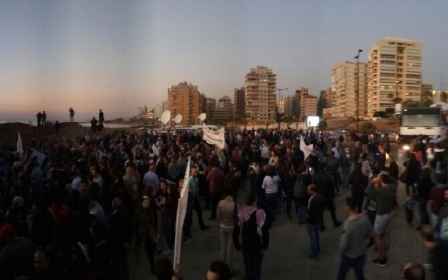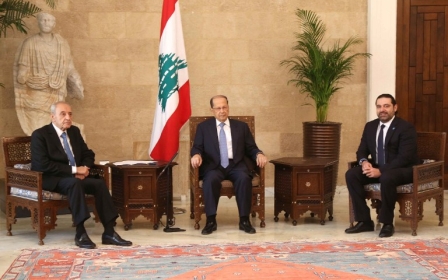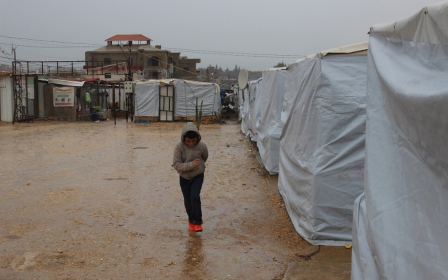Lebanon’s new government: Winter and summer under the same roof
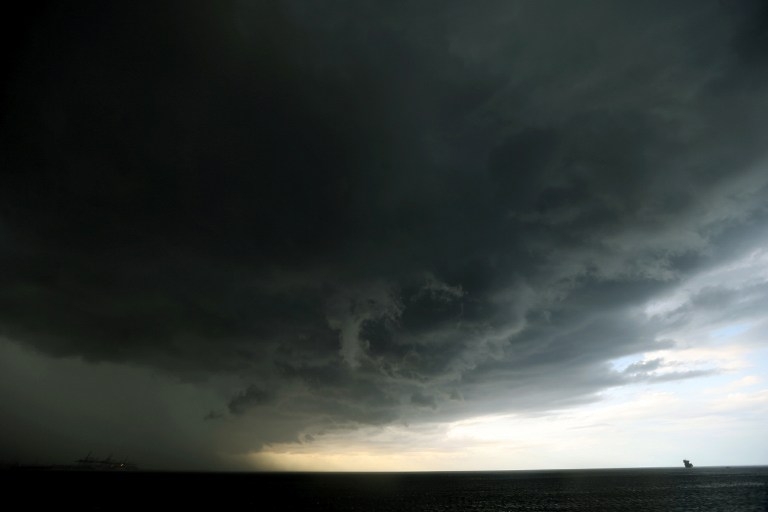
It took just under two and a half years for Lebanon to elect President Michel Aoun, making the 48 days it took Prime Minister-designate Saad al-Hariri to hammer out a government look like a walk in the park in comparison.
Hariri struggled tremendously to appease and convince the different Lebanese political factions to accept their share of the government
The reality is more complex.
The 30-member cabinet which was announced on Sunday night from the presidential place in Ba’abda, included eight ministerial appointments with no real portfolios. Locally, these appointees are referred to as ministers of state and are usually assigned less important ad-hoc responsibilities.
These imagined portfolios, trivial as they are, simply reflect the political crisis that Lebanon has faced for the past five years.
Despite the wide political support he received at the time of his naming as PM designate, Hariri struggled tremendously to appease and convince the different Lebanese political factions to accept their share of the government, including the eight aforementioned cabinet positions.
READ: Lebanon's deadlock is over, but don't hold your breath for reforms
Meanwhile, the Lebanese political establishment, led by Hariri, have attempted to depict the announcing of the government as a triumph for democracy and a resumption of the Lebanese political life.
This sentiment, however, clashes with the bleak reality which surrounded the formation of the government as well as the main challenges that awaits Hariri, who still needs the parliament vote to be confirmed to office.
Return to 2005?
The wider public saw in many of the cabinet’s pro-Syrian appointments – as well as the timing of the announcement of the cabinet formation a few days after the fall of Aleppo – as the final victory of Hezbollah and, by extension, their ally Syrian President Bashar al-Assad.
Rafik Hariri’s gamble to isolate his model from the perils of the region failed as the persistence of Syrian hegemony over Lebanon thwarted a milieu of stability from materialising
Before long, this claim will be put to the test, as the ensuing process will entail Hariri preparing a ministerial statement for his cabinet that includes an economic and political outlook for Lebanon.
This might be easier said than done, as Hezbollah and its allies will unequivocally refuse to sanction any government platform which does not recognise its role as a legitimate ‘resistance’ force, tasked with protecting Lebanon against external aggressors – be it Israel or the perceived threat of the Islamic State (IS) group across the border in Syria.
This probable scenario would virtually return Lebanon to the pre-2005 arrangement, when former Prime Minister Rafik Hariri, under duress from the Syrian regime, relinquished Lebanon’s foreign policy in exchange for allowing him to lead the country’s economic resurgence and reconstruction process.
The former left Syria and Iran with unmitigated control over Lebanon’s regional policy that included waging proxy war through Hezbollah against Israel, who were occupying the south of Lebanon at the time.
The latter Hong Kong model allowed Rafik Hariri to make Lebanon into a regional economic and technological powerhouse.
Ultimately, Rafik Hariri’s gamble to isolate his model from the perils of the region failed as the persistence of Syrian hegemony over Lebanon thwarted a milieu of stability from materialising which is imperative to encourage foreign investment.
Rafik Hariri was assassinated in 2005 in attack widely linked to Hezbollah.
A determined Hezbollah
As it stands, Saad Hariri's prospects are even more challenging as he faces a more determined Hezbollah who are fully immersed in the ongoing Sunni-Shia struggle in Syria, Iraq and Yemen and who will certainly not allow anyone to sideline it.
Consequently, Hezbollah will only facilitate Hariri’s government if the latter refrains from openly attacking them and publically appease them in the cabinet’s ministerial decree, an improbable scenario to say the least.
Moreover, it might be sound for the PM designate to always keep in mind that while all political parties use violence and bullying to attain political office, Hezbollah has no interest nor will in playing the Lebanese political game. Hezbollah simply wants its parallel Hanoi model to operate unbarred.
Saad Hariri might truly believe that he could steer Lebanon through troubled waters and, consequently, jumpstart an economic resurgence of his own, similar to the one pioneered by his late father.
However hoping for the Hong Kong model to coexist with its Hanoi antithesis is not very different from having winter and summer under the same roof – an impossibility.
- Makram Rabah is a PhD candidate at Georgetown University’s history department. He is the author of “A Campus at War: Student Politics at the American University of Beirut, 1967–1975” and a regular columnist for Now Lebanon.
The views expressed in this article belong to the author and do not necessarily reflect the editorial policy of Middle East Eye.
Photo: Dark clouds form over the Mediterranean sea in the Lebanese capital Beirut on 28 October 2015 (AFP)
Middle East Eye propose une couverture et une analyse indépendantes et incomparables du Moyen-Orient, de l’Afrique du Nord et d’autres régions du monde. Pour en savoir plus sur la reprise de ce contenu et les frais qui s’appliquent, veuillez remplir ce formulaire [en anglais]. Pour en savoir plus sur MEE, cliquez ici [en anglais].



